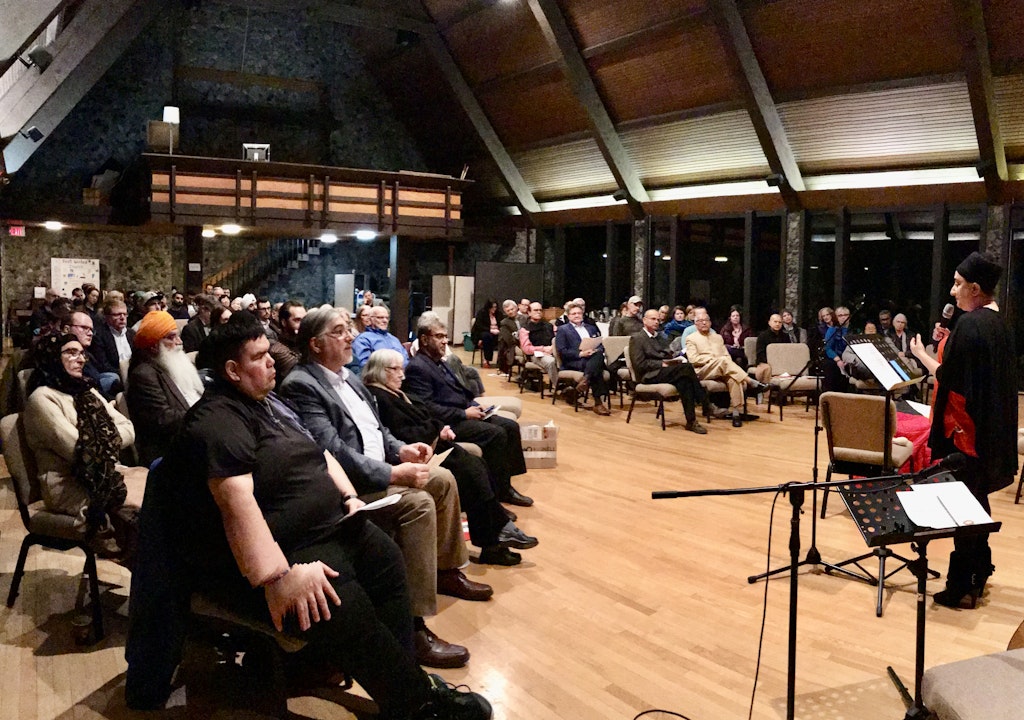The concept of love within the Baha’i Faith transcends mere emotion, evolving into a fundamental principle that binds humanity in a spirit of unity. This article explores the profound implications of love as perceived through Baha’i teachings, positing it as an infinite, encompassing force capable of transforming societal paradigms. The metaphor of an ocean—vast, deep, and expansive—serves to illustrate the depth and breadth of love within this spiritual framework.
At the heart of Baha’i doctrine lies the assertion that love is the very essence of creation. In this metaphysical schema, divine love operates as a primary force, fostering relationships among the varied spiritual and material significances of life. As one observes the majesty of the ocean, one recognizes that although it may appear turbulent on the surface, its depths harbor tranquility and richness. Similarly, love can manifest in myriad forms, ranging from fleeting affection to profound compassion, thereby nurturing the human spirit across a spectrum of experiences.
To engage with the Baha’i understanding of love, one must first recognize its salience as a transformative agent. Love engenders empathy, invites introspection, and encourages service to others. It possesses a catalytic nature; when kindled, it can illuminate even the darkest corners of the human experience. In this regard, love is not solely a personal endeavor but a collective commitment to uplift humanity. This notion encourages individuals to view their relationships as interconnected threads in the grand tapestry of existence, suggesting that one’s spiritual evolution is inexorably linked to the well-being of others.
Moreover, Baha’i teachings assert that divine love is not confined within the borders of personal affection; rather, it extends to all of humanity. This universality is embodied in the Baha’i principle of ‘the oneness of humanity,’ inspiring followers to cultivate genuine care for all individuals, irrespective of background or belief. In this respect, love transcends ideological barriers and societal divisions, challenging the pervasive tendencies toward sectarianism and prejudice. The metaphor of the ocean reiterates this idea—each drop contributes to the vast entirety, reminding us that individual actions reverberate throughout the collective experience.
At the core of Baha’i thought is the idea that love must be accompanied by justice and truthfulness. This triad—love, justice, and truth—serves as the foundation for ethical conduct and social harmony. While love may be deemed to comprise a softer attribute, the Baha’i Faith maintains that it requires a courageous commitment to honesty and fairness. Just as the ocean can be both serene and tumultuous, so too can love prompt both gentle nurturing and necessary confrontation. In moments when justice is paramount, love grants the fortitude to challenge injustices, equipping individuals with the moral compass essential for advocacy and reform.
Practicing love from a Baha’i perspective involves more than individual emotional expressions; it necessitates a comprehensive approach to community engagement. This theme is vividly articulated through the idea of ‘service to humanity,’ whereby love catalyzes proactive engagement in social and environmental issues. Here, the metaphor of the ocean is particularly evocative; vast and powerful, oceans are ultimately shaped by the myriad tributaries that feed into them—each representing individual contributions toward a common goal. The Baha’i framework encourages followers to recognize their unique potential to serve, understanding that collective action fortified by love engenders significant societal transformation.
To cultivate this love, Baha’is engage in spiritual practices that reinforce the principles of unity and altruism. Prayer and meditation serve as conduits through which individuals can deepen their connection to the divine essence of love. Through these contemplative practices, believers draw strength and inspiration from a source beyond themselves, aligning their intentions with those of a higher purpose. Such spiritual fortification paves the way for selfless service, allowing individuals to transcend personal limitations and embrace the collective well-being of humanity.
Furthermore, Baha’i teachings elucidate the role of love in fostering peace. The intrinsic tranquility that accompanies love mitigates conflict, offering a balm for societal discord. This is particularly pertinent in an era rife with division and strife. The metaphor of an ocean can serve as a collective healing force, where turbulent waves can give way to calm waters when individuals cultivate love and understanding. The Baha’i Faith encourages a paradigm shift in which love acts as the antidote to global injustice, promoting dialogue and reconciliation across cultural divides.
In summary, Baha’i teachings articulate a conception of love as an infinite, potent force that encompasses personal and communal dimensions. Through the lens of interconnectedness, justice, and peaceful engagement, the concept of love functions as a transformative agent capable of reshaping societal landscapes. By embodying this infinite love, individuals not only uplift themselves but contribute to the greater good of humanity, forging a path towards a more harmonious and united world. In the grand orchestration of existence, may our love flow as an ocean, nurturing and sustaining all it touches, heralding a new epoch grounded in compassion and collaboration.
